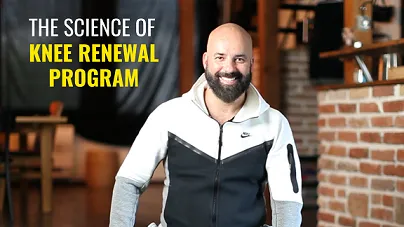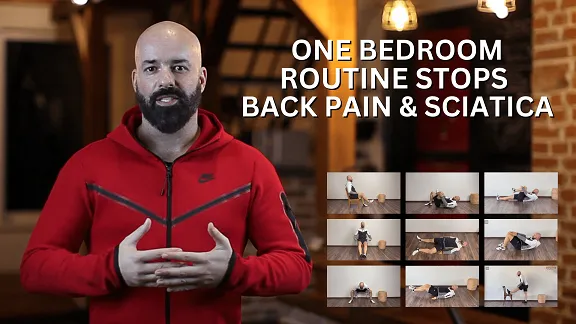Are you interested in starting your own podcast but don’t know where to begin? Look no further! In this article, you will learn the essential steps to get your podcast up and running. From choosing a topic to recording and editing your episodes, we’ve got you covered. So grab your microphone and let’s dive into the exciting world of podcasting!
Choosing a Topic
Identify your interests
When starting a podcast, it’s important to choose a topic that you are passionate about. Consider your hobbies, areas of expertise, or subjects that you enjoy learning and talking about. This will ensure that you stay motivated and engaged with your podcast in the long run.
Research popular podcast genres
Take some time to explore the various podcast genres that are popular within your intended audience. This can give you a sense of the topics and themes that resonate with listeners and help you brainstorm ideas for your own podcast. Whether it’s true crime, comedy, business, or self-improvement, understanding what is currently in demand can guide your decision-making process.
Check for market demand
While it’s important to choose a topic that you’re interested in, it’s also crucial to consider market demand. Conduct research to determine if there is already a saturated market in your chosen niche. Look for gaps or opportunities where you can offer a unique perspective or approach. This will help you attract a loyal audience and stand out among the competition.
Podcast Format
Select a format style
There are various podcast formats to consider, depending on your preferred style of content delivery. You can opt for a solo podcast, where you are the sole host, or a co-hosted podcast which involves multiple hosts discussing various topics. Additionally, interview-style podcasts allow you to bring in guests and experts, while storytelling podcasts focus on weaving narratives. Choose the format that aligns with your content goals and personal preferences.
Determine episode length
Deciding on the length of your podcast episodes is an important factor to consider. Generally, podcasts range from 20 minutes to an hour in length, but it ultimately depends on the nature of your content and your audience’s preferences. If you’re creating educational content, shorter episodes might work better, while entertainment-focused podcasts can afford longer episodes. Experiment to find the optimal episode length for your specific audience and content type.
Decide on episode frequency
Consistency is key when it comes to podcasting. Determine how frequently you will release new episodes. This can range from weekly to bi-weekly or even monthly, depending on your ability to consistently create high-quality content. Consider your time commitment, available resources, and production capabilities when deciding on the episode frequency. Remember, establishing a regular release schedule helps to build anticipation and maintain listener engagement.
Podcast Name and Branding
Brainstorm podcast names
Your podcast name plays a vital role in attracting listeners and creating a memorable brand. Brainstorm a list of potential names that reflect the essence of your podcast and resonate with your target audience. Consider using descriptive or catchy phrases that capture the theme or purpose of your podcast. It’s also important to ensure that the name is easy to remember and pronounce.
Consider SEO and domain availability
When choosing a podcast name, it’s essential to consider search engine optimization (SEO). Incorporating relevant keywords into your podcast name can improve your discoverability in search results. Additionally, check for domain availability to secure a website that aligns with your podcast name. This allows you to create a dedicated online presence and makes it easier for potential listeners to find your podcast.
Create a captivating logo and cover art
Visual branding is an important aspect of podcasting. design a captivating logo and cover art that reflects the style and theme of your podcast. Consider hiring a professional designer or using online graphic design tools to create a visually appealing and eye-catching logo. Remember, your logo and cover art are often the first impression potential listeners will have of your podcast, so make sure it accurately represents your brand and attracts attention.
Podcast Equipment
Microphones and headphones
Investing in high-quality microphones and headphones is crucial for recording professional-sounding episodes. Consider purchasing dynamic or condenser microphones, which are specifically designed for podcasting and provide excellent sound quality. Additionally, choose comfortable headphones to ensure accurate audio monitoring during recording and editing sessions. Research different options and read reviews to find the best equipment that fits your budget and needs.
Audio recording software
Selecting the right audio recording software is essential for capturing and editing your podcast episodes. There are numerous options available, ranging from free to paid software. Audacity, GarageBand, and Adobe Audition are popular choices among podcasters. Experiment with different software to find the one that suits your technical skills and provides the features you require for a seamless recording and editing process.
Soundproofing your recording space
Creating a quiet and acoustically sound recording space is vital for producing high-quality podcast episodes. Consider soundproofing your recording area to minimize background noise and echoes. This can be achieved by using soundproofing panels, acoustic foam, or even setting up in a carpeted room. Additionally, use a pop filter to reduce plosive sounds while recording. Taking these measures will help ensure crisp and professional audio for your podcast.
Creating Show Content
Outline episode structure
Creating a well-structured episode is important to keep your listeners engaged and organized. Outline the structure of each episode to maintain a consistent flow. Start with an introduction to captivate your audience, move on to the main content or discussion, and conclude with a memorable ending or call-to-action. Incorporate segments or recurring elements unique to your podcast to add variety and excitement to each episode.
Generate episode ideas
To keep your podcast fresh and interesting, generate a list of episode ideas that align with your chosen topic. Consider brainstorming sessions, research, and talking to potential listeners to gather ideas. Look for current trends, hot topics, or unanswered questions within your niche. By diversifying your episode ideas, you’ll attract a wider range of listeners and maintain their interest in the long run.
Research and prepare episode material
Thoroughly research and prepare the material for each episode to provide valuable and accurate content to your listeners. Use reliable sources, interviews, personal experiences, and expert opinions to add depth and credibility to your podcast. Create detailed outlines or scripts to ensure a smooth delivery and minimize the chances of stumbling or losing track while recording. Preparation is key to delivering informative and engaging episodes.
Recording and Editing
Setting up recording software
Before starting the recording process, ensure that your recording software is set up correctly. Check the microphone settings, audio inputs, and outputs. Adjust the recording levels to avoid distortion or clipping. Familiarize yourself with the software’s features, such as editing tools and effects, to streamline the post-production process. Taking the time to properly set up your recording software will ensure high-quality audio and minimize technical difficulties.
Recording and adjusting microphone levels
When recording, make sure to speak clearly and at an appropriate volume. Experiment with microphone placement and distance to find the optimal sound capture. Adjust microphone levels in your recording software to ensure a balanced and clear audio signal. Monitor your voice through headphones while recording to catch any issues or inconsistencies in real-time. It may take a few practice sessions to find the ideal microphone settings, so don’t be afraid to experiment and make adjustments.
Edit out mistakes and add sound effects
Editing plays a crucial role in refining your podcast episodes. Listen to the recorded audio carefully and edit out any mistakes, pauses, or unwanted background noise. Smooth transitions between segments and optimize the overall pacing of the episode. Additionally, add sound effects or music to enhance the listening experience and create a polished final product. Invest time in learning basic editing techniques or consider outsourcing the editing process to ensure a professional result.
Podcast Hosting
Research podcast hosting platforms
Podcast hosting platforms are essential for storing and distributing your podcast episodes to various podcast directories and platforms. Research different hosting platforms to find one that suits your needs and budget. Consider factors such as storage space, analytics, ease of use, and customer support when choosing a hosting platform. Compare different options and read user reviews to make an informed decision.
Choose a hosting provider
Once you have selected a hosting platform, it’s time to choose a hosting provider. Evaluate the pricing plans, features, and reputation of different providers. Look for providers that offer reliable uptime, scalability, and easy integration with popular podcast directories such as Apple Podcasts and Spotify. Remember to consider the long-term potential of your podcast and choose a provider that can accommodate your growth.
Upload and publish your episodes
After selecting a hosting provider, upload your podcast episodes to the hosting platform. Follow the guidelines and instructions provided by your chosen platform to ensure proper formatting and optimization. Include relevant metadata such as episode titles, descriptions, and tags to improve discoverability. Once uploaded, publish your episodes to make them available to listeners on various podcast platforms. Regularly update your podcast hosting account with new episodes to maintain a consistent presence and expand your audience reach.
Podcast Promotion
Create a podcast website
Establishing a website for your podcast is a valuable promotional tool. Create a dedicated website where listeners can find information about your podcast, browse past episodes, and access additional resources. Include an about page, contact information, and links to your podcast on different platforms. Optimize your website for search engines to improve discoverability. Regularly update your website with new episodes and engage with your audience through blog posts or newsletters.
Utilize social media platforms
Leverage the power of social media to promote your podcast and engage with your target audience. Create accounts on popular platforms such as Instagram, Twitter, Facebook, and LinkedIn. Regularly share updates, episode releases, behind-the-scenes content, and engaging posts related to the theme of your podcast. Engage with your followers, respond to comments, and actively participate in relevant communities to widen your reach and build a loyal listener base.
Collaborate with other podcasts
Collaborating with other podcasts in your niche can greatly expand your listener base and increase your podcast’s visibility. Reach out to other podcast hosts and propose collaboration opportunities such as guest appearances, cross-promotion, or joint episodes. This allows you to tap into each other’s audiences and introduce your podcast to new listeners. Building relationships and partnerships within the podcasting community can lead to mutually beneficial opportunities and help grow your podcast organically.
Monetizing Your Podcast
Identify potential revenue streams
Once your podcast has gained traction and established a loyal listener base, consider monetizing your podcast. Identify potential revenue streams that align with your podcast’s content and audience. These can include sponsorships, advertisements, affiliate marketing, or crowdfunding. Explore different options and select the ones that align with your brand and values while also providing value to your listeners.
Consider sponsorships and advertisements
Sponsorships and advertisements are popular ways to generate revenue from your podcast. Consider reaching out to relevant companies or brands that align with your podcast’s content and target audience. Develop sponsorship packages or advertising opportunities that offer value to both the sponsor and your listeners. Ensure that any sponsored content is authentic, transparent, and relevant to maintain the trust of your audience.
Create merchandise or offer premium content
Diversify your revenue streams by offering merchandise or premium content to your listeners. Design and sell branded merchandise such as t-shirts, mugs, or stickers that resonate with your audience. Alternatively, consider offering exclusive or bonus content for a subscription fee. This can include extended episodes, behind-the-scenes access, or special interviews. Providing additional value to your dedicated fans can generate a stable source of income while fostering a sense of community.
Engaging with your Audience
Encourage listener feedback
Engaging with your audience is crucial for building a loyal following and creating a community around your podcast. Encourage listener feedback by actively seeking reviews, comments, and suggestions. Foster open and interactive communication by asking for questions, feedback, or topic suggestions through social media or your podcast’s website. Respond to feedback promptly and authentically to show appreciation and build a strong rapport with your audience.
Respond to comments and reviews
Make it a priority to respond to comments and reviews from your listeners. Whether it’s on social media, podcast directories, or your own website, take the time to acknowledge and respond to feedback. Responding to positive comments shows appreciation for your listeners, while addressing constructive criticism demonstrates your commitment to improving the podcast. Engaging in conversations with your audience strengthens the connection and encourages continued support.
Host Q&A sessions or interviews
Hosting Q&A sessions or interviews with your audience or industry experts is an excellent way to further engage with your listeners. Collect questions from your audience and dedicate an episode or segment to answering them. This creates a sense of community and empowers your listeners to actively participate in the podcast. Additionally, inviting industry experts or influential guests to be interviewed on your podcast provides valuable insights and attracts new listeners who are interested in your guest’s expertise.
By following these steps and utilizing the resources available to you, starting and maintaining a successful podcast is well within your reach. Remember, consistency, quality content, and genuine engagement with your audience are key to growing your podcast and creating a lasting impact. So go ahead, choose your topic, brainstorm your ideas, and embark on this exciting podcasting journey. Happy podcasting!








